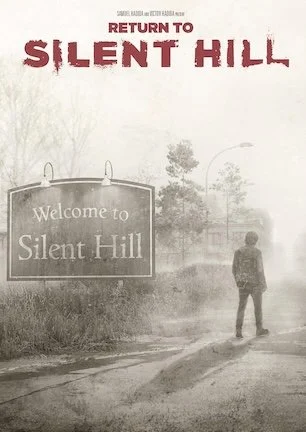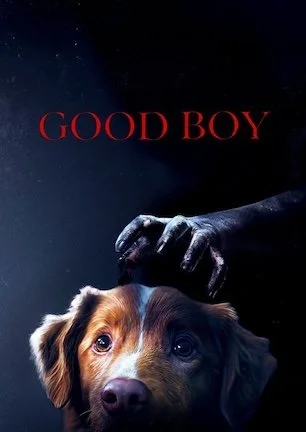Studio: Paramount Pictures
Director: William Brent Bell
Writer: David Coggeshall, David Leslie Johnson-McGoldrick, Alex Mace
Producer: Alex Mace, Hal Sadoff, Ethan Erwin, James Tomlinson
Stars: Isabelle Fuhrman, Rossif Sutherland, Hiro Kanagawa, Matthew Finlan, Julia Stiles, Samantha Walkes, Dave Brown
Review Score:
Summary:
After escaping a psychiatric facility, a homicidal woman whose dwarfism keeps her looking young worms her way into the lives of an American family by impersonating their missing daughter.
Review:
“Orphan” has one of the most memorable twists in horror history. In the 2009 thriller, grieving parents Peter Sarsgaard and Vera Farmiga adopt Esther, a Russian girl they believe to be only nine years old. As Esther wreaks homicidal havoc and crafts sinister psychological schemes, viewers are led to believe they’re watching a typical “killer kid” flick. The hitch is, Esther suffers from a rare form of dwarfism that keeps her looking like a child. She’s really a woman in her thirties who has her sights set on seducing her foster father and slaughtering everyone else in the family. How’s that for melodramatically macabre?
“Orphan: First Kill,” a prequel set in 2007, has its hands full with trying to top that twist. Improbably, it comes close; some might even say it succeeds. Embracing its origins in B-movie madness, “First Kill” wisely chooses to throw reality to the wind by becoming kooky entertainment akin to a carnival sideshow that just wants to wow an audience gawking in stunned disbelief.
Isabelle Fuhrman returns to the role that made her and Esther inextricably iconic as a unique villainess, one of the few such female figures in fright films. Any article on the movie’s making will tell you that director William Brent Bell and his creative collaborators opted not to do any de-aging tricks via CGI. Instead, they try passing off Fuhrman as Esther through purely practical techniques. This means staging scenes similarly to how “The Lord of the Rings” filmed the hobbits. The camera uses forced perspective to capture angles meant to make Fuhrman look like she’s three feet tall. Actual children then double as her stand-ins for behind-the-back shots where Fuhrman’s face isn’t seen. It looks goofy as all get out, but that ends up being part of the fun.
Born in 1997, Isabelle Fuhrman was right around Esther’s supposed age when the original “Orphan” went in front of a camera. Now that it’s roughly 15 years later, Fuhrman doesn’t remotely pass for age ten anymore. Nevertheless, I admire the courageous disregard displayed by the filmmakers to go for it anyway. They knew their ruse wouldn’t be entirely successful, but they also knew it wouldn’t really matter. They simply trusted a game audience to willingly suspend copious disbelief. That’s because Fuhrman is Esther as much as Robert Englund is Freddy Krueger, and “First Kill” is all about throwing things back to being wickedly weird the way theatrical thrillers often were in the aughts.
By using her childlike charms on a lusting security guard, unleashing another inmate to go medieval on another guard, and manipulating an art therapy instructor who was in over her head, Leena orchestrates a blood-soaked escape from an Estonian mental institution over “Orphan: First Kill’s” first 15 minutes. How does she get the name Esther? In a devilishly devious move that’s as sick as they get, Leena scours a missing persons database in search of kids she might resemble. Leena settles on Esther Albright, a little girl from Connecticut who disappeared four years ago, but would now be ten. Posing as their missing daughter, Leena makes it to America where “Esther” is awkwardly welcomed back home by her shocked parents Tricia and Allen and big brother Gunnar.
Clues quickly start coming together that something isn’t quite right, thanks to everyone having some oddly intuitive observations. I can’t imagine a father would be too surprised that his 10-year-old daughter has different interests than she did when she was six, but that’s how Allen reacts when Esther expresses a newfound interest in painting. It also doesn’t seem suspicious that Esther would mistake a child psychologist’s parrot as the same one from four years ago. After all, she was supposedly kidnapped and has been living in Eastern Europe all that time. She’s really expected to keep a space in her brain to remember the color of an office pet she probably only spent a few minutes with?
Just when it seems like Esther only appears intent on setting up the same surreptitious usurpation of this family like she’d inflict on Sarsgaard and Farmiga two years later in “Orphan,” “First Kill” hits its 55-minute mark. That’s when the script gets flipped, as the saying goes, and the film takes a turn that would make Pinocchio’s nose grow five feet long if he tried to claim he saw it coming.
What’s terrific about “Orphan: First Kill’s” twist is how it upends the power dynamic that had been constant from the first movie up through this point. The revelation turns the tables to put Esther on her heels when she’d previously been the one holding all the wild cards that kept her the chip leader. Suddenly, she has to start playing from behind, and it’s an uncomfortable position that neither Esther nor the audience is used to seeing her have to squirm out of.
The pivot isn’t an M. Night Shyamalan mind-blower by any means, although it provides enough octane to rev “Orphan: First Kill’s” engine so it can race through the last leg of the runtime. The guessing game regarding exactly how everything will pan out keeps suspense high and engagement higher, and that’s no small feat when we’re talking about a prequel whose ending we largely know given how the first film starts out.
Squeezing out a third installment before Isabelle Fuhrman truly becomes too old to play Esther seems like an impossible proposition, unless de-aging effects hit a price point that straight-to-streaming genre fare can afford. In the meantime, anyone who liked “Orphan” enough to want to see the character’s earlier antics should have that itch furiously scratched by “Orphan: First Kill.” Those familiar with the first film should also know what brand of bizarre this budding franchise brings, and should have no trouble adjusting their antennas for enjoyably amusing absurdity.
Review Score: 70






While the 110-minute runtime could use a trim to maintain more energy, “Redux Redux” is an easy recommend for anyone who enjoys low-key sci-fi.